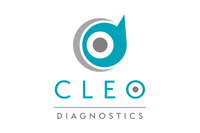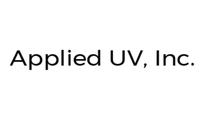Spectranetics Acquisition Adds Depth to Philips' Image-Guided Therapy Portfolio
Philips completed the acquisition of Spectranetics, a developer of medical devices used in minimally invasive procedures within the cardiovascular system.
Philips (NYSE:PHG) completed the acquisition of Spectranetics Corp (NASDAQ:SPNC) a developer of medical devices used in minimally invasive procedures within the cardiovascular system, a move set to enhance the health technology company’s health portfolio.
In a company statement released by Philips, sales for Spectranetics in 2017 were projected to fall somewhere between $293 million and $306 million. The acquisition will cost Philips $2.16 billion including debt, according to a report from Reuters.
Scott Drake, CEO of Spectranetics, said in the release that the company will now be able to scale and expand its portfolio of products, their innovation, pipeline and their clinical data compendium.
As part of the deal, Philips will take on all of Spectranetics’ issued and outstanding shares at $38.50 each. “This represents a 27 percent premium to Spectranetics closing price on June 27, 2017,” the statement said.
Philips sees this move as a way to expand their image-guided therapy business and their general trend moving towards the “health continuum,” Frans van Houten, CEO of Royal Philips said.
“Spectranetics’ highly competitive product range… will enable clinicians to decide, guide, treat and confirm the appropriate cardiac and peripheral vascular treatment to deliver enhanced care for patients with better outcomes,” van Houten said in the above-noted company statement.
As reported by Reuters van Houten informed reporters that this acquisition will increase the position of Philips in the heart disease sector. Back in 2015, the company acquired vascular imaging company Volcano, now Philips Volcano.
Analysts weigh in
A note from Canaccord Genuity indicated that Stellarex, a drug-coated balloon peripheral angioplasty platform, which obtained a European CE mark approval in 2014, was the prime target of the deal.
Stellarex is on the verge of obtaining a US Food and Drug Administration (FDA) approval late in Spectranetics second quarter, the Canaccord note read.
“With an additional 43 lasers placed globally in the recent quarter, and with SPNC currently in over 1,000 US accounts, we see a healthy and substantial customer base to sell into post approval,” the note said.
Analysts from Berenberg said in a note that the move for Philips wouldn’t increase the company’s return on invested capital for five years.
“In our view, this is a nice technology-rich company and adds scale and breadth to Philips’ existing portfolio of mechanical atherectomy and intravascular ultrasound – but clearly this is a punchy price to pay,” the firm said, according to Reuters.
As reported by Bloomberg, Marcel Achterberg an analyst at Degroof Petercam issued a note saying the acquisition should boost the growth rate of Philips
“With the ongoing sell down of light and the soon-to-be-sold majority in Lumileds, Philips is able to make the next move in its health-care strategy,” Achterberg said in the note.
Investor Takeaway
This turns to be a massive success story for Spectranetics, whose tech made it a worthy investment from Philips.
The stock price of Spectranetics jumped 24.6 percent between June 27 and June 29 following the announcement. As of 1:17 p.m. EST on Thursday (June 29), Spectranetics’ share price was $38.40. Year-to-date, the company’s share price has increased 56.73 percent.
Don’t forget to follow us @INN_LifeScience for real-time news updates.
Securities Disclosure: I, Bryan Mc Govern, hold no direct investment interest in any company mentioned in this article.



